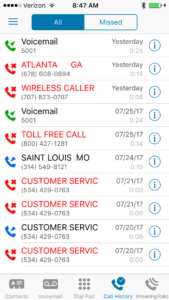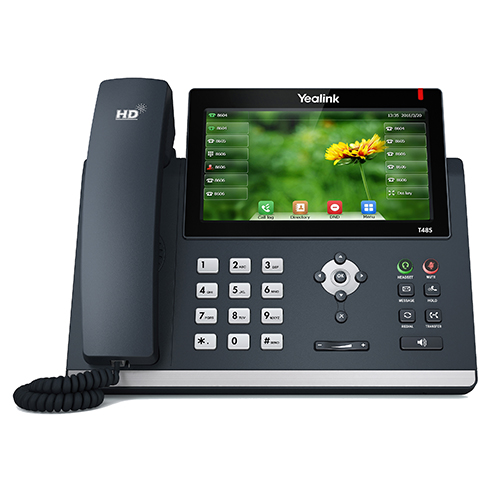Unified Communications is a buzz phrase that gets thrown around by vendor representatives across a range of industries.
It’s definitely a catchy term. But there’s a problem. Many small business owners only have a vague idea what Unified Communications actually means.
It’s no wonder. It turns out that Unified Communications is defined differently by vendors in different industries.
What’s more, Unified Communications is not just one technology. It is a set of technologies that are interwoven to provide business users with wider access to interpersonal communication channels across platforms and devices.
From a VoIP vendor’s perspective, one thing that Unified Communications means is that business telephone calls can be made and received on multiple devices.
For example, with VoIP, an incoming business call can ring to a desktop phone, a mobile phone, a tablet, a computer — or to all of the above. Incoming communication is unified across different platforms and devices.
Outbound business calls can be made across the same set of devices. If the person being called has Caller ID, Unified Communications gives the phone call the appearance of coming from an office phone, even though the call may actually originate from a personal smartphone or even a home computer.
How does this type of Unified Communications benefit a small business and its employees?
Employee Accessibility Via Unified Communications
 First, it means that customers, prospects or vendors who are trying to call an employee can get through to that employee more easily. To make him or herself more accessible, a VoIP user can choose to forward their business calls to their mobile phone when they’re away from their desk or out of the office.
First, it means that customers, prospects or vendors who are trying to call an employee can get through to that employee more easily. To make him or herself more accessible, a VoIP user can choose to forward their business calls to their mobile phone when they’re away from their desk or out of the office.
Instead of forwarding calls to a mobile phone, a VoIP user may decide to install and use a mobile VoIP app. Incoming calls will ring into the mobile app when someone calls the employee’s work number.
A mobile VoIP app can also give a user a more unified view of their overall communications. Among other things, the mobile app can display business call history.
A mobile VoIP app can optionally be connected to a smartphone’s contact list, thereby unifying two sets of contact records and making it easier to identify who an incoming caller is.
Faster Customer and Prospect Response Time
If a small business user is unable to answer a phone call because they are out of the office or because it’s after hours, they can be immediately alerted to new voicemail messages via email. The employee can also instantly listen to those messages, since they are attached to emails as audio files.
With certain legacy PBX and Centrex phone systems, an employee who is out of the office has to periodically call into voicemail to find out whether there are any new messages. This lag time can mean the difference between replying to an important caller in hours instead of in minutes.
When time is a factor, Unified Communications can mean the difference between winning or losing a deal. It can mean the difference between retaining and losing a customer.
Improved Employee Experience
Unified Communications provides employees with greater flexibility and a better work experience.
If an employee has a long commute and is allowed to telecommute one or more days a week, customers won’t even know when the employee is working from home — at least until the dog barks or UPS rings the doorbell.
With Unified Communications, an employee who travels frequently is better connected to the business and to his or her customers.
Beyond the buzz phrase and the tech, Unified Communications is about serving customers and prospects in a more timely and efficient way. It’s about enhancing the small business employee experience.


